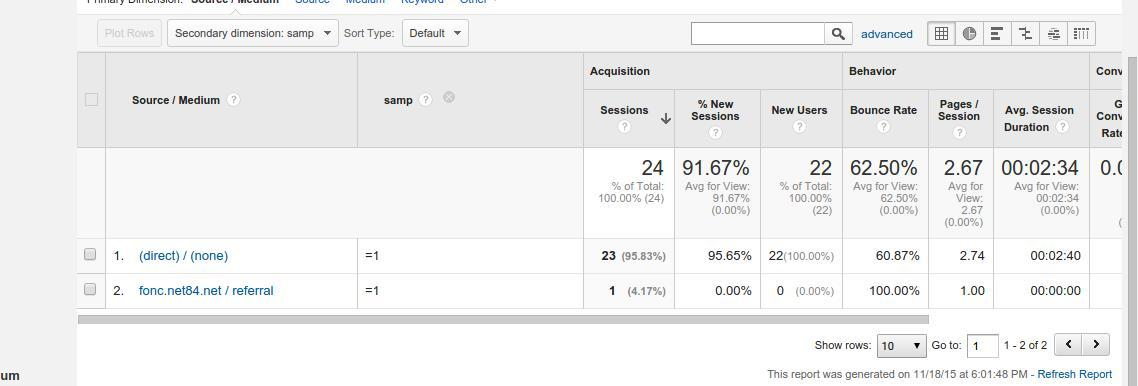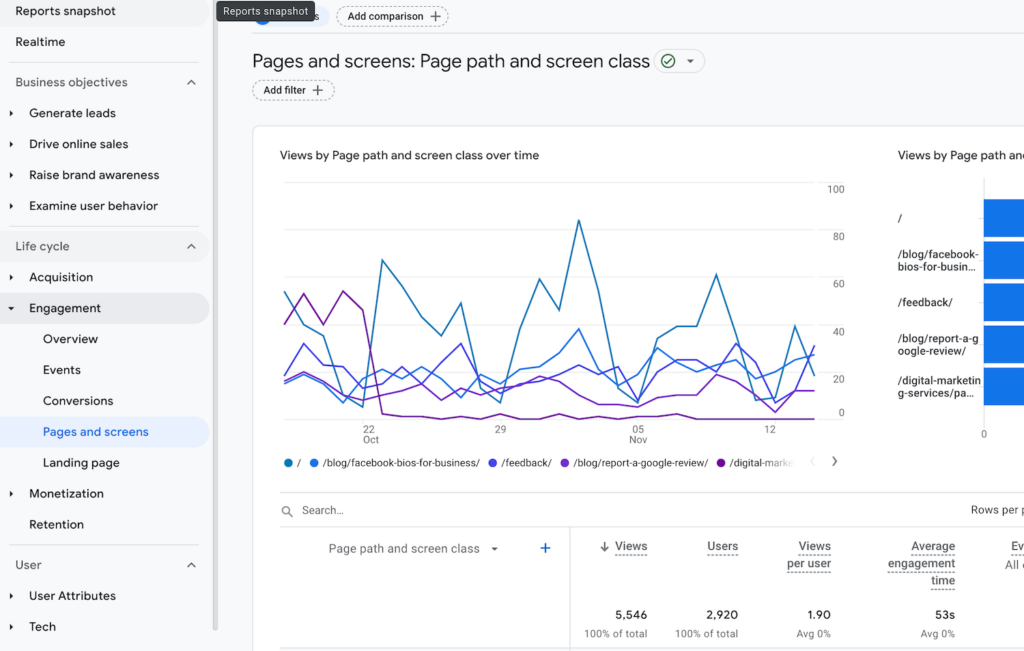Navigating the Midst of Additional Dimension in Google Analytics: A Thorough Expedition on Its Functionality
Additional dimensions, though seemingly uncomplicated at first glimpse, harbor a wide range of untapped potential waiting to be used. As we embark on this trip to explore the nuanced capability of secondary measurements, we will certainly discover how this feature can illuminate patterns, introduce connections, and eventually lead the way for informed decision-making in the electronic landscape (what is a “secondary dimension” in google analytics?).
Recognizing Second Measurements in Google Analytics

Understanding exactly how second dimensions work is essential for leveraging the complete power of Google Analytics. These measurements help you address more complicated inquiries about customer actions and the efficiency of your internet site material and marketing efforts. You can use additional measurements to assess which devices or internet browsers are most generally made use of by visitors that make a purchase, or to contrast the bounce prices of different traffic sources. By integrating main metrics with additional measurements, you can acquire beneficial insights that drive notified decision-making and optimization techniques - what is a “secondary dimension” in google analytics?.
Leveraging Additional Dimensions for Information Analysis
Structure upon the foundational understanding of how second measurements boost data evaluation in Google Analytics, the utilization of these extra layers of info ends up being paramount in removing useful understandings for informed decision-making and optimization techniques. By leveraging secondary measurements, experts can delve much deeper right into the efficiency metrics by adding even more context to the key dimensions, hence revealing hidden patterns and correlations that could not be obvious initially glance. This much deeper degree of analysis allows companies to much better comprehend individual behavior, recognize trends, and pinpoint areas for enhancement.
Additionally, additional dimensions supply a more detailed sight of the information, permitting division based on various specifications such as demographics, gadgets, traffic resources, and a lot more. This division facilitates a much more granular analysis, making it possible for services to customize their projects and methods to specific audience sections for enhanced targeting and customization. Basically, the calculated use of secondary measurements equips organizations to make data-driven decisions that drive growth and success in the digital landscape.
Advanced Methods for Secondary Dimension Execution
Checking out elaborate techniques to harness the full potential of additional measurements in Google Analytics raises the deepness and refinement of data analysis for tactical decision-making. One advanced method for implementing second dimensions is the use of customized measurements. By defining personalized measurements, users can sector information further to gain even more certain understandings into customer actions, such as tracking communications with details aspects on a page or monitoring the performance of a particular advertising project. Another innovative approach is the use of regex (normal expressions) within second measurements. Regex enables for more adaptable and powerful pattern matching, enabling customers to create intricate filters for information analysis. Additionally, combining second measurements with sophisticated sectors can offer much more granular understandings by applying multiple layers of division to the data. This technique permits a much deeper understanding of individual habits based upon numerous standards at the same time. Implementing these innovative techniques for second dimensions in Google Analytics empowers customers to conduct a lot more innovative analysis and make data-driven choices with accuracy.
Interpreting Insights With Additional Measurements

When interpreting understandings with second measurements, it is important to consider the context of the data and just how different measurements connect with each other. Understanding which details web traffic sources lead to higher conversion rates or recognizing which tools individuals like for making acquisitions can supply actionable understandings for optimizing advertising projects and improving overall website performance. By meticulously examining the information with additional measurements in mind, businesses can make informed decisions that drive purposeful outcomes and boost their electronic visibility.
Enhancing Efficiency With Additional Dimensions

One crucial way to optimize efficiency with secondary dimensions is by segmenting information extra granularly. This permits you to isolate specific aspects that may be affecting your metrics and obtain a much better understanding of what drives success or failing in your electronic campaigns. By integrating additional measurements such as 'tool classification' and 'landing page,' you can determine which device types are most effective for particular touchdown web pages, allowing you to customize your techniques accordingly.
Furthermore, using second dimensions can assist you recognize patterns, patterns, and relationships that may not be obvious when analyzing information with main measurements alone. This much deeper level of analysis can result in even more educated decision-making and inevitably improve the total efficiency of your internet site or digital marketing projects.
Final Thought
In final thought, second dimensions in Google Analytics play a crucial duty in enhancing data evaluation and giving much deeper understandings into website efficiency. By making use of sophisticated techniques and translating the data successfully, companies can optimize their techniques and improve general efficiency. Recognizing the capability of second dimensions is crucial for making notified decisions and driving success in the electronic landscape.
By try this out leveraging additional measurements, analysts can dig deeper into the performance metrics by adding even more context to the main dimensions, therefore revealing surprise patterns and correlations that could not be obvious at very first look. One advanced method for applying additional measurements is the use of Click Here custom-made dimensions.Having mastered innovative techniques like personalized dimensions and regex for additional dimension execution in Google Analytics, the next critical action is interpreting the beneficial insights obtained with these innovative data division approaches. Translating understandings through secondary measurements entails examining the partnerships between the secondary and main measurements selected, uncovering patterns, fads, and correlations that might not be quickly apparent when looking at the data in its whole.When analyzing understandings with additional measurements, it is important to think about the context of the information and just how different measurements engage with each other.